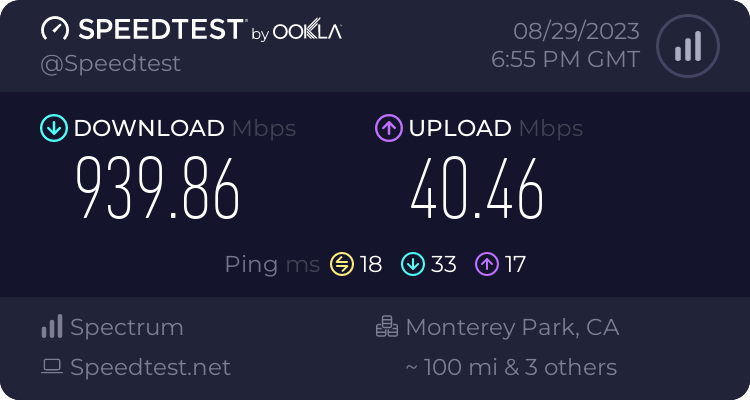Script started on Sat Apr 28 11:24:09 2001
$ /sbin/ifconfig tun0
tun0 Link encap:point-to-Point Protocol
inet addr:10.0.3.2 P-t-P:10.0.3.1 Mask:255.255.255.255
UP POINTOPOINT RUNNING NOARP MULTICAST MTU:150 Metric:1
RX packets:1 errors:0 dropped:0 overruns:0 frame:0
TX packets:2 errors:0 dropped:0 overruns:0 carrier:0
collisions:0
RX bytes:88 (88.0 b) TX bytes:168 (168.0 b)
$ ping -c 9 -i 900 10.0.3.1
PING 10.0.3.1 (10.0.3.1): 56 data bytes
64 bytes from 10.0.3.1: icmp_seq=0 ttl=255 time=6165731.1 ms
64 bytes from 10.0.3.1: icmp_seq=4 ttl=255 time=3211900.8 ms
64 bytes from 10.0.3.1: icmp_seq=2 ttl=255 time=5124922.8 ms
64 bytes from 10.0.3.1: icmp_seq=1 ttl=255 time=6388671.9 ms
--- 10.0.3.1 ping statistics ---
9 packets transmitted, 4 packets received, 55% packet loss
round-trip min/avg/max = 3211900.8/5222806.6/6388671.9 ms
Script done on Sat Apr 28 14:14:28 2001



